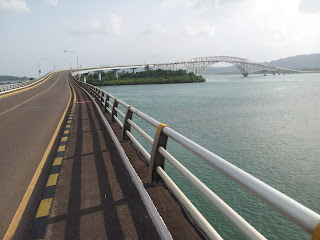
Filipino Albert del Rosario a lone ASEAN voice taking on China
Placing consensus above all, it is fair to say that ASEAN leaders are generally not known for their displays of emotion or passion.
Yet, in a crucial closed-door meeting in July, Philippine Foreign Secretary Albert del Rosario tried to tap those dormant qualities as he tried to rally his peers to stand up to China over the West Philippine Sea (South China Sea).
Trying, in the words of one observer, "to bloody well wake them up", del Rosario quoted the famous lines from German theologian Martin Niemöller of the perils of doing nothing in the face of mounting tyranny. Describing how the Nazis, unopposed, first came for the communists and then the trade unionists, Niemöller said: "Then they came for the Jews, and I didn't speak out because I wasn't a Jew. Then they came for me, and there was no-one left to speak out for me."
Rarely has the Association of Southeast Asian Nations heard such language within its staterooms. "It was classic del Rosario," said one ASEAN envoy. "He's not afraid to appeal to our better selves … and he's not afraid to stand up and be counted when it comes to the South China Sea."
That meeting ended in unprecedented rancour as the 10 Southeast Asian foreign ministers failed to produce an annual communique for the first time in the grouping's 45-year history. Meeting host Cambodia stood accused of doing Beijing's bidding in shutting down debate over how to capture in the document regional concern over the South China Sea.
When ASEAN leaders met in Phnom Penh last month, Philippine President Benigno Aquino continued his foreign secretary's theme. While he contradicted Cambodia's public claims of an ASEAN deal - hailed by Beijing - not to "internationalize" the West Philippines Sea (South China Sea) dispute, he told his peers to stand united, according to one meeting transcript.
"If you don't stand up when your neighbor's rights are violated, then you set the stage for the violation of your own rights," Aquino said.
This time Manila was more successful. With discreet backing from some the grouping's bigger players, including Indonesia and Vietnam, the claimed Cambodian deal never made it to the official closing statement.
But the broader issue of ASEAN's push to start formal negotiations with China on a binding code of conduct to govern intensifying tensions across the West Philippines Sea (South China Sea) until territorial disputes can be solved remains, at best, a work in progress.
Chinese officials have made increasingly clear in recent weeks that they are wary of the influence of "outside powers", particularly the US and Japan, and resent the portrayal of the code as somehow being a means to contain and/or control China. Hopes that negotiations could start early in 2013 now appear to be in vain.
Sitting in his office - part of a complex on Manila's Roxas Boulevard that overlooks the West Philippines Sea (South China Sea) - the courtly 73-year-old del Rosario sounds frustrated yet sanguine as he reviews a bruising year of diplomacy at the forefront of the strategic shifts now upsetting the region.
Ultimately, he stresses, he wants to return Sino-Philippine relations to a previously agreed status quo where territorial disputes were kept to the side of a relationship that flourished across trade, social and political fronts - something he believes would ultimately serve China's broader desires for a stable region.
"If there is a message I want to get across, that's it," he says.
Returning to that point will be no easy task, he acknowledges. The dispute over Scarborough Shoal - known in Chinese as Huangyan Island or as Panatag Shoal to the Philippines which within the UNCLOS 200 Nautical Miles Exclusive Economic Zone of the Philippines- is now the focus of the relationship.
With Beijing still deriding "provocations" after a Philippine naval ship challenged Chinese fishermen early this year, Fu Ying, the vice-minister for foreign affairs, recently told him that Beijing intended to keep coastguard-type vessels at the shoal permanently.
China has also used ropes to block access to the interior of the shoal, which falls within its controversial nine-dash line claim to virtually all of the South China Sea.
In some 36 rounds of consultations - "I've been counting them," Del Rosario says - Beijing has also detailed in no uncertain terms what it expects from Manila. No "internationalization" means bilateral talks only, and nothing conducted via the ASEAN, the United Nations or "outside partners" - particularly the Philippines' long-term security ally, the United States.
The Aquino administration is clearly rejecting Beijing's prescription. It is also renewing its strategic relationships, seeking to buttress its tiny and overstretched armed forces. US ships, submarines and military aircraft are suddenly visiting Philippines' ports and airfields once again while discreet talks are also under way with Japan to acquire a fleet of state-of-the-art coastguard cutters. It is also working more closely with Indonesia and fellow West Philippines Sea (South China Sea) claimant Vietnam.
As eloquent as he can be at times, del Rosario does not mince words when he talks about Beijing's demands.
"No sovereign country wants to be dictated to," he said.
"China is endeavoring to dictate to us how we should be behaving and what we should be doing. We feel that we ought to be able to use all the tools in the peaceful pursuit of resolution to [disputes] that is in accordance with our national interests."
Those "tools" include a three-track approach by Manila - talks with ASEAN and international partners, bilateral diplomacy with Beijing and research into taking unilateral legal action to formally dispute China's claim under the UN Convention on the Law of the Sea. The latter, some analysts believe, would risk Beijing's wrath, and extensive economic and diplomatic retaliation would be expected.
Del Rosario insists, however, that the long-term goal must be a "durable" legal and political solution, rather than brittle case-by-case efforts that do not tackle the broader issues. "Ultimately, I'm trying to be constructive."
He says an effective ASEAN serves Chinese and US interests long-term and insists the organization remains strong. He dismisses the Phnom Penh tensions as "like a family disagreement ... eventually you come together and emerge stronger".
The challenges, of course, mean he occupies one of the hottest seats in regional diplomacy. While the New York-educated businessman and former ambassador to Washington are highly respected in the US, he cuts a more controversial figure at home and in Beijing.
Some Filipino businessmen have questioned his tactics towards dealing with China while Senator Antonio Trillanes, who is running a back channel to Beijing, has said del Rosario has mis-handled formal negotiations over Scarborough.
Del Rosario has, however, denied reports he will resign and he apparently has Aquino's backing.
Reports in China's state media this week show just how tough a road lies ahead. In news stories outlining last week's appointment to Beijing of new Philippine ambassador Erlinda Basilio, mainland analysts and scholars made it clear that Beijing was in no mood to see Manila "stirring up trouble".
Through it all, del Rosario says he remains "basically an optimist". While he ponders whether Beijing's new leaders will be able to resist the demands of an assertive and nationalistic public, he says: "I'm hoping that China will recognize that being a responsible member of the international community would be a preferable choice to muscle." (http://is.gd/5mywq7)
SCMP

























